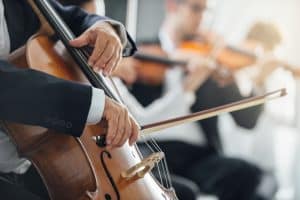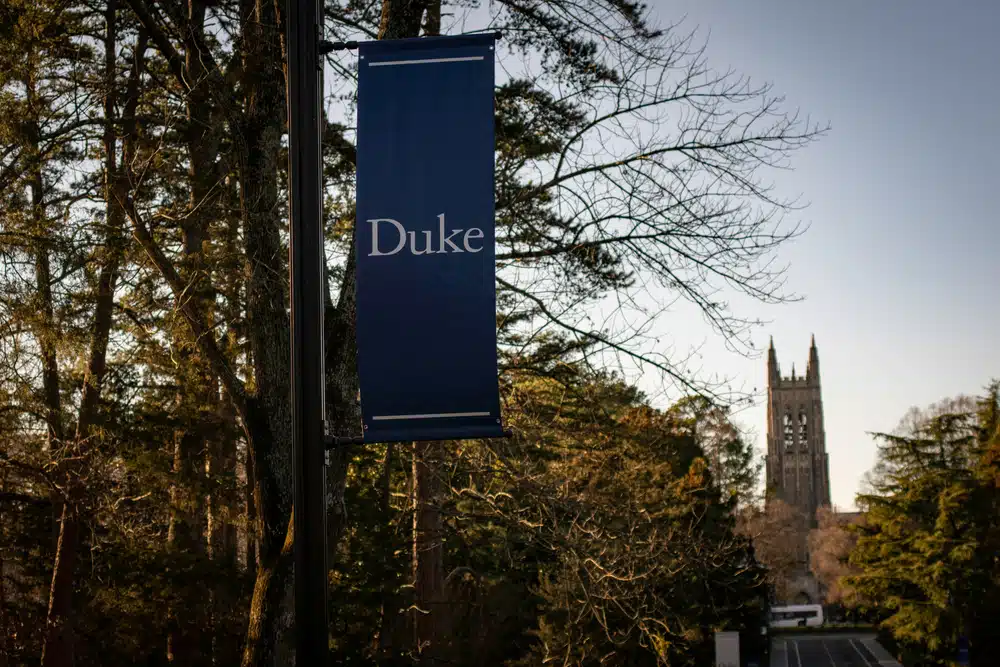Discovering Duke’s Music Program
Duke University’s music program truly stands out in the wide and varied landscape of music education. Fusing intensive instruction with hands-on experience, this educational platform nurtures aspiring musicians to reach their highest potential. However, the benefits of this program extend far beyond the classroom, providing a framework for personal growth, career development, and lifelong learning.
Understanding Duke’s Music Program
Music is a comprehensive curriculum offered by Duke University, a respected institution with a rich history. The program aims to expose students to a wide spectrum of musical disciplines, offering both breadth and depth in its curriculum.

At Duke University, music is not just a subject of study but a vibrant and integral part of campus life. The program is designed to foster a deep appreciation for music and its cultural significance while providing students with the necessary skills and knowledge to excel in their chosen musical paths.
Whether students aspire to become professional musicians or music educators or want to explore their passion for music, Duke’s music program offers a supportive and nurturing environment for growth and exploration.
The History and Evolution of the Duke Music Program
The program’s roots date back to 1942 when the study of music was housed under the Department of Aesthetics, Art, and Music. Over time, it evolved into a department in 1960, keeping pace with the dynamic world of music, seamlessly blending traditional aspects of musical education with innovative, forward-thinking approaches.
Throughout its history, Duke’s music program has been home to renowned faculty members who have not only shaped the program but also contributed significantly to the field of music. Their expertise and passion have attracted talented students worldwide, creating a vibrant and diverse community of musicians.
From its humble beginnings, Duke’s Department of Music has climbed the rungs of popularity and prestige to build itself as an institution that promises rigorous academic training and a multifaceted, enriching experience for students. Today, it stands as a beacon of musical excellence, known for producing graduates who make significant contributions to the world of music.
The Structure of Duke’s Music Program
The program is structured around a core curriculum that includes studies in music theory, methodology, and history, in addition to performance-based modules. This comprehensive approach ensures students develop a well-rounded understanding of music and its facets.
Furthermore, students have the opportunity to specialize in different disciplines, allowing them to tailor their studies to their musical aspirations. Whether their interests lie in classical music, jazz, composition, or ethnomusicology, Duke’s music program offers a wide range of courses and resources to support their individual musical journeys.
One of the unique aspects of Duke’s music program is its emphasis on experiential learning. Students are encouraged to actively engage with music through performance opportunities, ensemble participation, and collaborations with fellow musicians. This hands-on approach enhances their technical skills and fosters creativity and artistic expression.
The unique blend of academic and practical training ensures that students go beyond just learning to read and play music, encouraging them to think critically about music, its composition, and its role and impact in society. The program also provides numerous opportunities for students to showcase their talent through recitals, concerts, and community outreach programs, allowing them to connect with audiences and make a meaningful impact through their music.
Overall, Duke’s music program is a vibrant and dynamic community that nurtures its students’ artistic growth and intellectual curiosity. Through its comprehensive curriculum, rich history, and commitment to excellence, the program continues to inspire and shape the next generation of musicians.
The Multifaceted Benefits of the Program
While the sheer richness of the program is a marvel in itself, the benefits derived from Duke’s music program are the real game-changers. They go far beyond the narrow scope of academia, promising well-rounded personal development and a head start in the professional world.
When it comes to Duke’s music program, the academic advantages are truly unparalleled. From a purely educational standpoint, the program offers a robust syllabus designed by industry professionals. The comprehensive teaching methods ensure that students grasp each concept in depth, nurturing their ability for nuanced understanding and broadening their knowledge base.
However, the benefits of Duke’s music program extend far beyond the classroom. Personal growth and development are at the core of this program. The elements of creativity and self-expression integral to music education have profound implications for personal growth. Music education enhances cognitive and emotional health and empowers students to articulate their thoughts and emotions more effectively, boosting their self-esteem and confidence.

Moreover, the teamwork in ensemble performances fosters a sense of community and group camaraderie that is invaluable in all walks of life. Students learn to collaborate, communicate, and support one another, skills that are essential in the music industry and any professional setting.
But what truly sets Duke’s music program apart is its impact on career opportunities. The benefits of this program translate into a myriad of possibilities for students. With its critical thinking emphasis and experiential learning approach, the program prepares students to thrive in a broad array of professions – be it within the music industry or beyond.
More specifically, the program exposes students to networking opportunities and offers career services that help kickstart their professional lives in the music field. Through internships, workshops, and industry connections, students gain valuable real-world experience and make meaningful connections that can open doors to exciting career paths.
Ultimately, Duke’s music program is not just about learning music theory and performance skills. It is a transformative experience that shapes well-rounded individuals ready to take on the challenges of the professional world. From academic advantages to personal growth and career opportunities, this program offers a comprehensive and enriching journey for aspiring musicians and music enthusiasts.
The Unique Features of the Duke Music Program
Although offered in many forms across the globe, what sets Duke University’s Department of Music apart are certain distinguishing features that make the music program a truly unique educational experience.
At Duke, the Music Program is not just about learning to play an instrument or understanding music theory. It is a comprehensive and immersive journey that prepares students for a lifelong appreciation and understanding of music.
The Role of Faculty in the Program
Duke University’s Department of Music faculty includes experienced musicians and educators who dedicate their time and energy to ensure a holistic learning experience for students. With the right mix of strict academic standards and an appreciation for music, they cultivate inspired learners.
These faculty members are not just teachers but mentors who guide students through their musical development. They provide individualized attention and support, helping students discover their unique musical voice and encouraging them to explore new genres and styles.
One of the program’s key strengths is its deep commitment to students’ intellectual growth, creative potential, and professional development. This mentorship has the potential to change the trajectory of a student’s musical journey, making the program priceless.
The Diversity of Musical Genres and Disciplines
Duke’s music program offers unparalleled diversity in its course offerings. From classical and jazz to world music and contemporary compositions, the diversity of genres fostered within the program broadens students’ musical horizons.
Students have the opportunity to study and perform music from different cultures and time periods, gaining a deeper understanding of the rich tapestry of musical expression. Exposure to a wide range of genres enhances their technical skills and nurtures their creativity and ability to think outside the box.
Only through such extensive exposure can scholars truly understand and appreciate the universal language of music, thus opening up a world of endless possibilities.
Performance Opportunities and Events
Moreover, the program offers an array of performance opportunities, from recitals and concerts to festivals and competitions. These experiences offer students the chance to learn by doing and the platform to showcase their talents, offering invaluable hands-on experience.
Students have the opportunity to collaborate with fellow musicians, both within the program and from other disciplines, creating a vibrant and supportive community. They can participate in ensembles, bands, and orchestras, honing their skills in a collaborative setting.
Participating in such events can boost students’ confidence and help cement their love for music while nurturing the skills necessary to excel professionally. These performances also bridge the academic and professional worlds, allowing students to network with industry professionals and gain exposure to potential career opportunities.
Overall, Duke’s music program stands out for its faculty’s dedication, the diversity of musical genres and disciplines, and the wealth of performance opportunities it offers. It is a program that educates, inspires, and empowers students to become well-rounded musicians who can make a meaningful impact in the world of music.
How to Apply and What to Expect
Applying to Duke’s music program involves a few important steps. But once accepted, the experience that awaits is well worth the effort.
When embarking on the Duke’s Department of Music application process, prospective students should be prepared for a journey beyond just submitting paperwork. It is an opportunity to showcase their passion for music and dedication to honing their craft.
The Application Process for Duke’s Music Program
Applicants must provide a completed application form, academic transcripts, letters of recommendation, and a personal statement detailing their musical interests and goals. Additionally, prospective students must also audition as part of the selection process.
The application form serves as a gateway to the program, allowing the admissions committee to gain insight into the applicant’s musical background, achievements, and aspirations. It is a chance for students to present themselves as talented individuals committed to their musical journey.
Once the application is submitted, the anticipation begins. Waiting for an acceptance letter can be nerve-wracking but also a time filled with excitement and hope. Each day brings the possibility of receiving news that will shape the future of the aspiring musician.
While the application process warrants focused attention, it is crucial to remember that it is just the first step toward a rewarding musical journey. The true adventure lies in what comes next.
Preparing for Duke’s Music Program
Preparation for this ground-breaking program involves a balance of academic readiness and practical proficiency. Getting acquainted with music theory, honing performance skills, and developing a healthy practice routine can prepare prospective students for program success.
However, preparation goes beyond the technical aspects of music. It also involves cultivating a mindset that embraces growth and embraces challenges. Duke’s music program is designed to push students beyond their comfort zones, encouraging them to explore new genres, experiment with different techniques, and collaborate with fellow musicians.
It is also beneficial to mentally prepare for the intensity of the program and the commitment it requires. Understanding that hard work and passion are the cornerstones of success in any field, including music, is crucial. Duke’s music program demands dedication, perseverance, and a willingness to push boundaries.
Life as a Duke Music Student
Life as a Duke Music student is as varied and exciting as the courses. The journey promises to be eventful and enriching, from rigorous academic work and practical sessions to building lifelong friendships and networks.
Students can expect a vibrant and supportive community that fosters creativity and collaboration. Duke’s music program offers numerous opportunities to perform in ensembles, attend masterclasses by renowned musicians, and participate in workshops that expand their musical horizons.

Moreover, the supportive and inspirational environment created by the committed faculty further fuels the students’ intellectual curiosity and musical prowess, leaving them better equipped for the professional world. The faculty members are not only accomplished musicians but also mentors who are invested in the growth and success of their students.
Duke’s music program offers an exceptional educational platform that impacts the intellect and heart. Its unique structure, wide-ranging benefits, enriched faculty, and unique features make it an unparalleled choice for aspiring musicians. The program’s commitment to nurturing talent, fostering creativity, and pushing boundaries ensures that students graduate not only as skilled musicians but also as well-rounded individuals ready to make their mark in the world of music.
If you need help putting the finishing touches on your college applications, at AdmissionSight, we have over 10 years of experience guiding students through the competitive admissions process.
AdmissionSight can help you put your best foot forward when applying to college this fall. Contact us today for more information on our services.



































